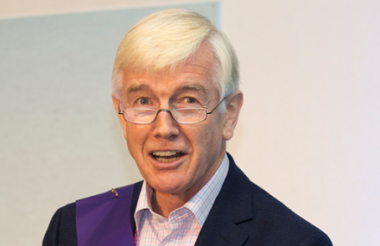Mencap has warned that the impact of government demands for back-payments to be made to sleep-in shift workers could be wider than initially thought, after gathering evidence from other sectors.
The charity warned that the "government has created a perfect storm for providers" ahead of next week's deadline for talks with the sector to reach a conclusion.
Enforcement action is currenlty on hold while discussion between the government and the sector continues, but the deadline to reach a resolution is next week and the deadline has already been extended once. Mencap has now worked with the children's home sector, homecare and the independent school sector and found that they are also likely to be impacted by the demands.
Mencap has previously estimated the cost to the disability sector would be up to £400m, but this week said that this was "only part of the story" and called on the government to act.
The Independent Children's Homes Association (ICHA) estimates that 25 per cent of its members are concerned they could face closure if back-pay liabilities are not fully funded by government and could close immediately.
Jonathan Stanley, chief executive of ICHA, said: “Sleep-in back payments, which will range from £40,000 to over £2m, for each provider, depending on the size of the provider and number of homes they run, will be the final nail in the coffin for so many who have faced a zero increase in fees from local authorities, the only purchaser and income source, over a number of years.”
Around 8 per cent of the country’s 2,000 children’s homes are provided by charities.
Associations representing special schools and homecare providers also expressed their support for Mencap’s campaign.
Derek Lewis, chair of Mencap, said: “We already knew that the impact on learning disability care would be devastating but it is only now emerging that many of the country's 2,000 specialist children's homes would also be seriously affected.
“I urge government to recognise its responsibilities and commit to funding all sleep-ins back payment liabilities. Assuming, as has been suggested by some, that providers can trade through the crisis that is about to engulf children's and learning disability care would be a catastrophic mistake.”
Lewis also described the situation as a "perfect storm".
Disability charities have argued that demands to back-pay the minimum wage to sleep-in shift workers are unfair because the application of the wage regulations to overnight workers was not clear until the government published updated guidance in October 2016.
Unions say minimum wage is important
Unions, however, have insisted that care organisations like Mencap were wrong not to pay overnight workers the minimum wage.
Last month, Unison general secretary Dave Prentis said in a statement: “In the absence of fines or the public shaming of any firm found guilty of poverty pay, the UK’s minimum wage law is being seriously undermined.
“While there may be some sympathy for charities who owe their sleep-in staff money for not paying the minimum wage when they should have been, many care providers are private equity-backed companies that can well afford to pay up.”
Related articles











